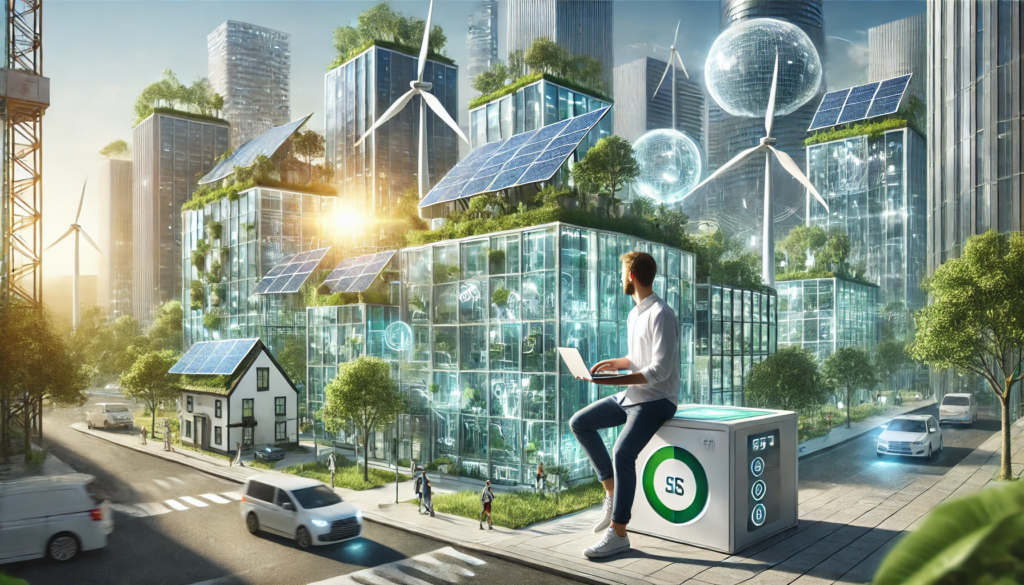As the world grapples with the urgent need to address climate change, the role of Building Automation Systems (BAS) professionals has never been more critical. Us experts are at the forefront of designing, implementing, and optimizing strategies to reduce carbon emissions in buildings, which account for nearly 40% of global energy-related CO2 emissions. With the recent discussions and innovations showcased at AHR Expo 2025, it’s clear that BAS professionals are key players in the decarbonization movement.
The BAS Professional’s Expertise: A Cornerstone of Decarbonization
BAS professionals bring a unique blend of technical knowledge and practical experience to the table. Their expertise in integrating smart technologies, optimizing energy use, and ensuring system efficiency makes them indispensable in the fight against climate change. Here’s how their skills are shaping decarbonization strategies:
- Designing Smart, Energy-Efficient Systems
BAS professionals are instrumental in designing systems that minimize energy consumption while maintaining comfort and functionality. At AHR Expo 2025, the emphasis was on next-generation BAS platforms that leverage artificial intelligence (AI) and machine learning to predict energy needs and adjust systems in real time. These advancements allow buildings to operate at peak efficiency, significantly reducing their carbon footprint. - Implementing Decarbonization Technologies
From heat pumps to advanced HVAC controls, BAS professionals are tasked with implementing cutting-edge technologies that support decarbonization. At AHR Expo 2025, sessions highlighted the growing adoption of all-electric systems and the integration of renewable energy sources like solar and wind into building operations. BAS professionals ensure these systems are seamlessly integrated into existing infrastructure, maximizing their impact. - Optimizing Building Performance
Even the most advanced systems require ongoing optimization to maintain efficiency. BAS professionals use data analytics and continuous monitoring to identify inefficiencies and fine-tune systems. AHR Expo 2025 showcased tools that provide real-time insights into energy use, enabling professionals to make data-driven decisions that further reduce emissions.
Key Takeaways from AHR Expo 2025
This year’s AHR Expo underscored the critical role of BAS professionals in achieving global decarbonization goals. Several sessions stood out:
- The Rise of AI-Driven BAS: Experts in many sessions discussed how AI revolutionizes building automation, enabling predictive maintenance and adaptive energy management. These technologies are helping buildings achieve net-zero targets faster than ever before.
- Electrification and Decarbonization: Sessions focused on the transition to all-electric buildings, with case studies showcasing successful implementations in both new constructions and retrofits. BAS professionals were highlighted as essential in managing the complexity of these transitions.
- Interoperability and Open Protocols: A recurring theme was the need for interoperability between systems. BAS professionals are leading the charge in adopting open protocols that allow diverse systems to communicate, ensuring holistic decarbonization strategies.
The Path Forward: Collaboration and Innovation
The journey to decarbonization is a collective effort, and BAS professionals are at its heart. Their ability to innovate, adapt, and implement solutions drives meaningful change in the built environment. However, success will require collaboration across industries, continued investment in research and development, and a commitment to upskilling to keep pace with evolving technologies.
As we look to the future, the role of BAS professionals will only grow in importance. Their expertise is not just a luxury—it’s a necessity in the global push to combat climate change. By embracing the latest advancements and working together, we can create a sustainable, decarbonized world for generations to come.
If you’re a BAS professional, take pride in the critical role you play. Your work is shaping the future of our planet. And if you’re not, it’s time to recognize and support the invaluable contributions of these experts. Together, we can build a greener, more sustainable future.



